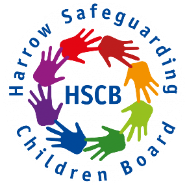Bullying
What is bullying?
Bullying is behaviour that hurts someone else such as name calling, hitting, pushing, spreading rumours, threatening or undermining someone.
It can happen anywhere at school, at home or online. Its usually repeated over a long period of time and can hurt a child both physically and emotionally.
Bullying that happens online, using social networks and mobile phones, is often called cyberbullying. A child can feel like theres no escape because it can happen wherever they are, at any time of day or night.
Bullying includes:
- verbal abuse, such as name calling and gossiping
- non-verbal abuse, such as hand signs or text messages
- emotional abuse, such as threatening, intimidating or humiliating someone
- exclusion, such as ignoring or isolating someone
- undermining, by constant criticism or spreading rumours
- controlling or manipulating someone
- racial, sexual or homophobic bullying
- physical assaults, such as hitting and pushing
- making silent, hoax or abusive calls
- online or cyberbullying.
It can be hard for adults, including parents, to know whether or not a child is being bullied. A child might not tell anyone because they’re scared the bullying will get worse. They might think that they deserve to be bullied, or that it’s their fault.
You cant always see the signs of bullying. And no one sign indicates for certain that a childs being bullied. But you should look out for:
belongings getting lost or damaged
physical injuries such as unexplained bruises
being afraid to go to school, being mysteriously ‘ill’ each morning, or skipping school
not doing as well at school
asking for, or stealing, money (to give to a bully)
being nervous, losing confidence, or becoming distressed and withdrawn
problems with eating or sleeping
bullying others.
Don’t wait until you’re certain if you are worried about a child. If you have any concerns or suspicions, contact our free helpline service to speak to an NSPCC counsellor 24 hours a day, 365 days a year.
We will listen to your concerns, offer advice and support and can take action on your behalf if a child is in danger.
You dont have to tell us who you are if you dont want to, or you can ask us not to share your name or contact with the police or social services. Find out more about how you can remain anonymous below.
Contact NSPCC’s trained helpline counsellors for 24/7 help, advice and support.

